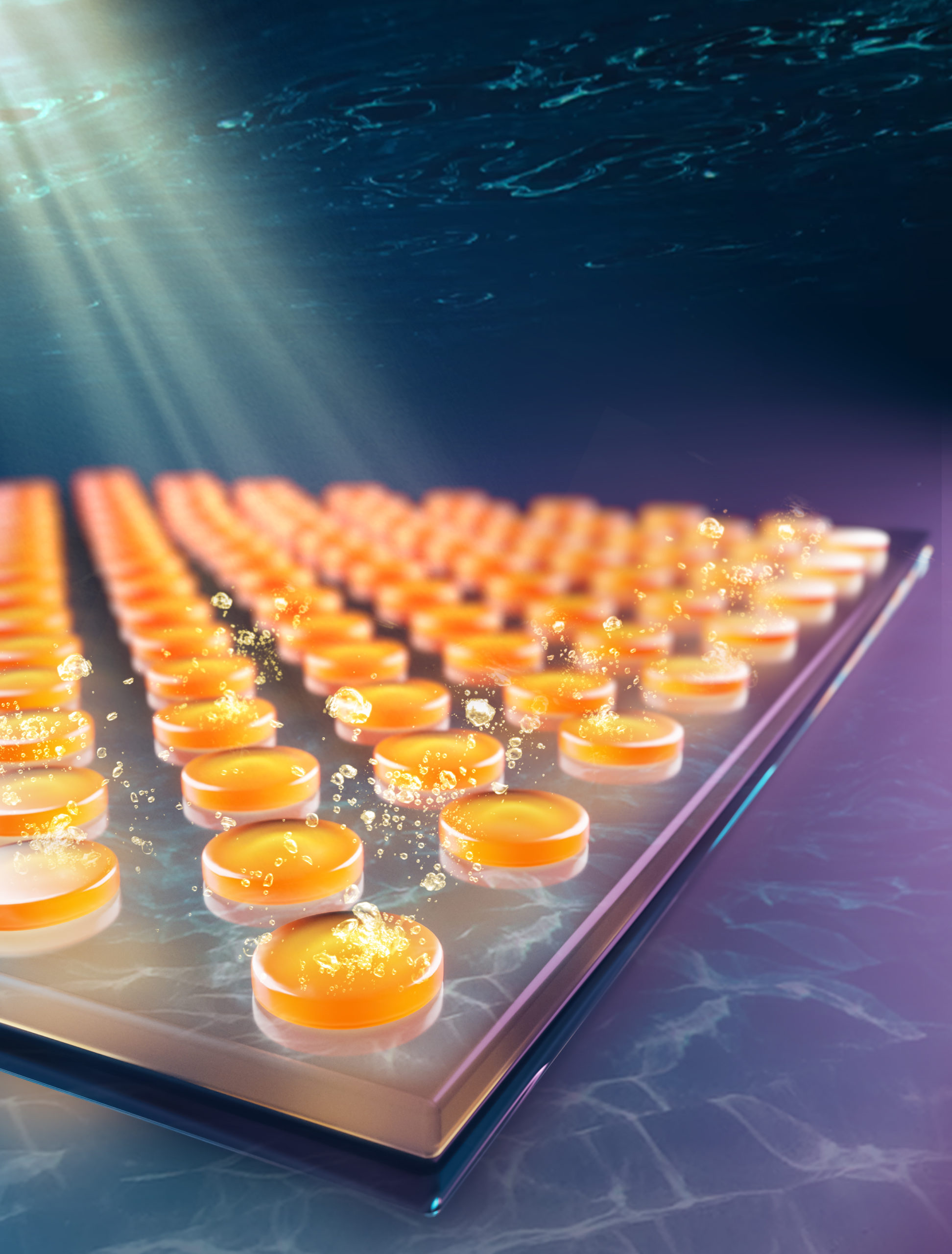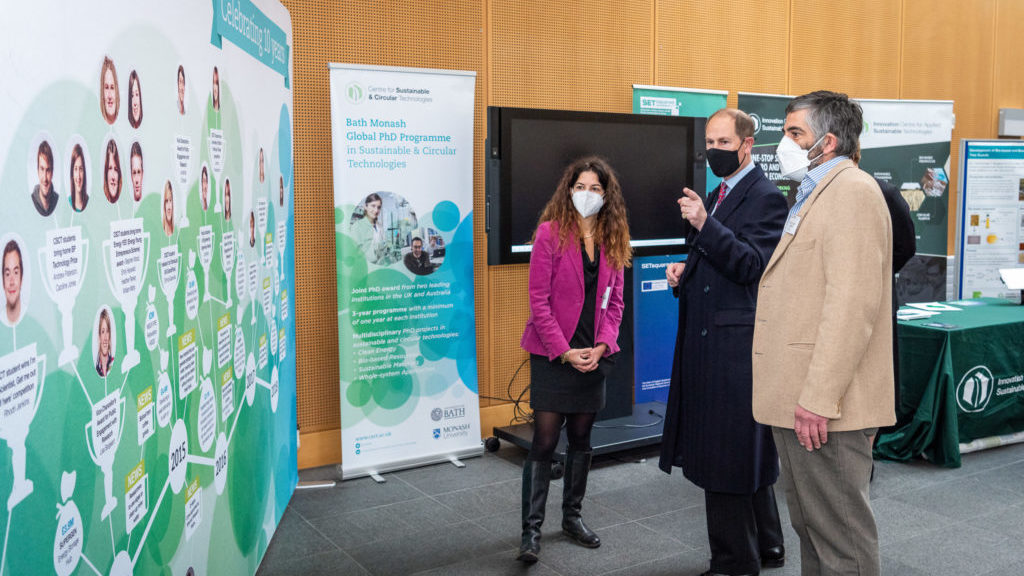
CSCT researcher to lead clean energy application strand of £10m EPSRC grant
Image credit: Ludwig Hüttenhofer ‘GaP disks on a photoelectrode for enhanced water splitting’
Dr Simon Freakley will lead the work package on clean energy applications on a £10m EPSRC grant awarded to study light-driven chemical conversion.
The EPSRC grant will investigate if light can be used as a sustainable way to reduce the energy required in key chemical processes. This multidisciplinary research programme combines the expertise of King’s and Imperial College London and UK Catalysis Hub researchers (represented by Cardiff University, UCL, University of Manchester and University of Bath), and supported by industrial partners, in order to understand underlying fundamental physical and chemical processes and how to control them and develop a material base for new photocatalysts.
The 6-year project, ‘New perspectives in photocatalysis and near-surface chemistry: catalysis meets plasmonics’ aims to advance a new field of research called “plasmo-catalysis”, which will take the light-harvesting capabilities of metallic nanostructures and transform this energy to control chemical reaction pathways in photocatalysis and photo-electrocatalysis. The research has the potential for wide-reaching applications in energy conversion, environmental clean-up and the pharmaceutical industry.
Professor Anatoly Zayats from the Department of Physics at King’s and project lead, said: “This is a very exciting research programme at the interface of physics, chemistry and material science which may help to address the most pressing societal sustainability challenges. We are looking forward to working with our collaborators at Imperial and the UK Catalysis Hub to make this research a success and transfer the results to our industrial partners to make our world better.”
The project builds on two previous programme grants between King’s and Imperial College London in the field of plasmonics, which have demonstrated a fundamental understanding on how to efficiently harvest light for energy conversion – now providing a route to applications in chemistry and catalysis. In this next step, researchers from the UK Catalysis Hub will collaborate with the team to apply their expertise to some of the most challenging problems facing a green energy society.
Professor Richard Catlow, UK Catalysis Hub lead, said: “Plasmonics offers the possibility of transformational progress in key areas of catalytic science, including those relating to low carbon energy and environmental protection. The Kings, Imperial, Catalysis Hub collaboration is ideally placed to develop and exploit these synergies.”
Dr Simon Freakley, University of Bath representative within the UK Catalysis Hub in the project, said: “Typically, we use heat to power catalytic reactions. By gaining the fundamental understanding of how we can use light instead, we open up new possibilities to solve important problems. This can only be achieved by linking up expertise in different areas through this kind of project, where we can learn from multiple disciplines. These are very exciting times for catalysis research.”







